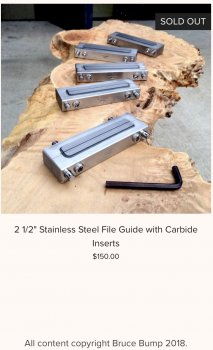B from Monty
Member
Greetings all. I took a 3 day class and made my first knife. Now I want to make them from my own home. I live in Montgomery, MN and am looking to forge small to medium sized knives. Given a budget of $3,000, zero equipment and almost as much Macgyver type skills as equipment, what do folks recommend for me to get started? Looking for equipment that can get me through the beginner stage and service me into the next stages without sacrificing quality. Any and all advice and feedback is welcomed. Thanks and I look forward to your replies.
Brett
Brett

